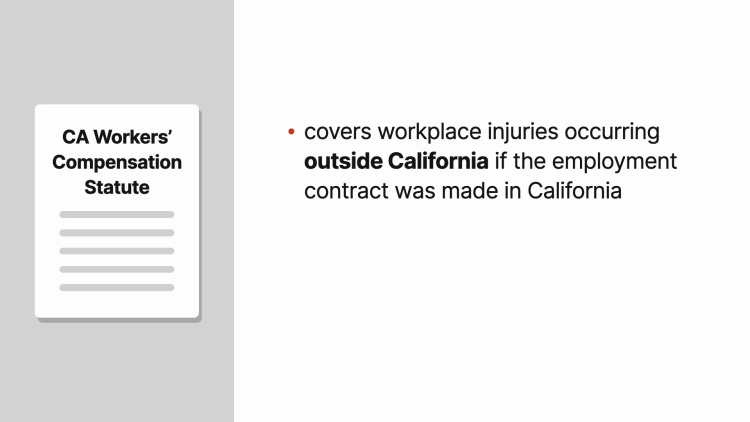Alaska Packers Ass'n v. Industrial Acc. Comm'n
United States Supreme Court
294 U.S. 532 (1935)

- Written by Denise McGimsey, JD
Facts
In May 1932, Palma (plaintiff) entered into an employment contract in California with Alaska Packers Association (APA) (defendant) whereby Palma agreed to perform seasonal work for APA in Alaska. APA promised to transport Palma from California to Alaska and back, at which point Palma would be compensated. Palma was not a resident of California or Alaska. The parties’ contract stipulated that the employment would be subject to the Alaska Workmen’s Compensation Law (Alaska Act). When Palma returned to California in August 1932, he sought compensation from California’s Industrial Accident Commission (Commission) (plaintiff) for injuries sustained in Alaska. The Commission rendered an award to Palma pursuant to the California Workmen’s Compensation Act (California Act). The California Act gave jurisdiction to the Commission over injuries occurring outside California as long as the employment contract was made within California. The California Act also specified that employers could not be exempted from liability thereunder by virtue of any contract, rule, or regulation. APA challenged the Commission’s decision in a California court, alleging that the Commission’s application of the California Act violated the full faith and credit owed to Alaska. The Supreme Court of California upheld the Commission’s decision, declaring that application of the Alaska Act would contravene California public policy. APA filed a petition for certiorari with the United States Supreme Court.
Rule of Law
Issue
Holding and Reasoning (Stone, J.)
What to do next…
Here's why 907,000 law students have relied on our case briefs:
- Written by law professors and practitioners, not other law students. 47,100 briefs, keyed to 996 casebooks. Top-notch customer support.
- The right amount of information, includes the facts, issues, rule of law, holding and reasoning, and any concurrences and dissents.
- Access in your classes, works on your mobile and tablet. Massive library of related video lessons and high quality multiple-choice questions.
- Easy to use, uniform format for every case brief. Written in plain English, not in legalese. Our briefs summarize and simplify; they don’t just repeat the court’s language.





